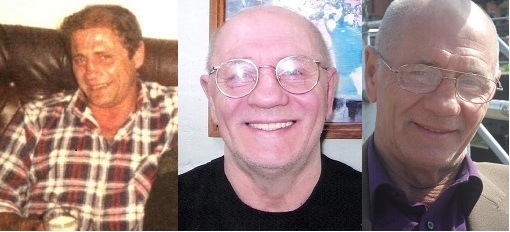How do you explain thirty years to a twenty-two year old? Oh certainly we can explain it, but we will never get them to fully understand the meaning because they have no point of reference. They have not been alive for thirty years! How can they even begin to understand how long that is? They cannot grasp the concept at all. They will say they can but of course that is sheer humbug. It is much like expecting a person who has never had more than fifty quid in his pocket to understand the ramifications of having a million at his disposal. It's a nice dream, but they wouldn't really understand it. A young man cannot visualize a time that is longer than his whole life has spanned so far.
Hardly a day goes past without some young fellow coming to see me on some fairly mundane matter - to ask for a bit of sugar, some tea-bags, a roll-up, lots of things - but really they have questions they want to ask. They are finally getting a reality check and want to know about my own experiences, and they all ask more or less the same questions: Was it hard? Did the time go quickly? How did I do it and stay sane? And so on.
Ha! Who says that I stayed sane? I think that I went right through madness and came out the other side a stronger and maybe even a wiser man. Not everyone would agree with that, but that's not the point really. What is the point is that when the youngsters ask me these questions in their various forms, it is quite difficult to know how to answer them. I used to do my best of course, and maybe I have handed out the odd snippet that has helped one or two, but I have realised that there is an even deeper purpose behind these young men speaking to me. They are sorry and don't want to be in prison. However, what they are really seeking is a father-figure to advise, a wise old head to comfort them and a person with a certain amount of gravitas to tell them that it will all turn out all right in the end. Some of them may even be seeking some form of forgiveness perhaps.
Well, I don't have a magic wand to wave for them - if I did, then I would wave it for myself. I look back at my own twenty-three years and feel a certain amount of sympathy for them. I empathize with them, but I can't forgive them. It's not my place. Forgiveness can only come from certain sources such as their victims - who, often as not, are dead - or perhaps God.
Well, the dead cannot forgive. And as far as I can see, God is busy.
The Voice In The Wilderness
